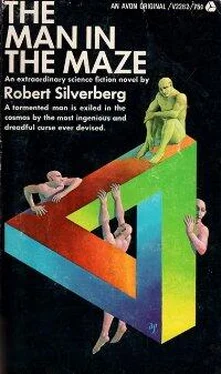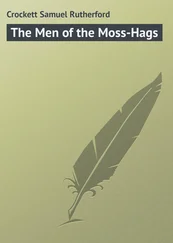“How are you going to get Muller to cooperate? Drug him? Torture him? Brainblast him?”
“None of those.”
“What, then? I’m serious, Charles. My role in this job ends right here unless I know what’s ahead.”
Boardman coughed, drained his wine, ate a peach, took three pills in quick succession. Rawlins’ rebellion had been inevitable, and he was prepared for it, and yet he was annoyed that it had come. Now was the time for calculated risks. He said, “I see that it’s time to drop the pretenses, then, Ned. I’ll tell you what’s in store for Dick Muller—but I want you to consider it within the framework of the larger position. Don’t forget that the little game we’ve been playing on this planet isn’t simply a matter of private moral postures. At the risk of sounding pretentious, I have to remind you that mankind’s fate is at stake.”
“I’m listening, Charles.”
“Very well. Dick Muller must go to our extragalactic friends and convince them that human beings are indeed an intelligent species. Agreed? He alone is capable of doing this, because of his unique inability to cloak his thoughts.”
“Agreed.”
“Now, it isn’t necessary to convince the aliens that we’re good people, or that we’re honorable people, or that we’re lovable people. Simply that we have minds and can think. That we feel, that we sense, that we are something other than clever machines. For our purposes, it doesn’t matter what emotions Dick Muller is radiating so long as he’s radiating something.”
“I begin to see.”
“Therefore, once he’s out of the maze we can tell him what his assignment is to be. No doubt he’ll get angry at our trickery. But beyond his anger he may see where his duty lies. I hope so. You seem to think he won’t. But it makes no difference, Ned. He won’t be given an option once he leaves his sanctuary. He’ll be taken to the aliens and handed over to them to make contact. It’s brutal, I know. But necessary.”
“His cooperation is irrelevant, then,” said Rawlins slowly.
“He’ll just be dumped. Like a sack.”
“A thinking sack. As our friends out there will learn.”
“I—”
“No, Ned. Don’t say anything now. I know what you’re thinking. You hate the scheme. You have to. I hate it myself. Just go off, now, and think it over. Examine it from all sides before you come to a decision. If you want out tomorrow, let me know and we’ll carry on somehow without you, but promise me you’ll sleep on it, first. Yes? This is no time for a snap judgment.”
Rawlins’ face was pale a moment. Then color flooded into it. He clamped his lips. Boardman smiled benignly. Rawlins clenched his fists, squinted, turned, hastily went out.
A calculated risk.
Boardman took another pill. Then he reached for the flask Muller had sent him. He poured a little. Sweet, gingery, strong. An excellent liqueur. He let it rest a while on his tongue.
Muller had almost come to like the Hydrans. What he remembered most clearly and most favorably about them was their grace of motion. They seemed virtually to float. The strangeness of their bodies had never bothered him much; he was fond of saying that one did not need to go far from Earth to find the grotesque. Giraffes. Lobsters. Sea anemones. Squids. Camels. Look objectively at a camel and ask yourself what is less strange about its body than about a Hydran’s.
He had landed in a damp, dreary part of the planet, a little to the north of its equator, on an amoeboid continent occupied by a dozen large quasicities, each spread out over several thousand square kilometers. His life-support system, specially designed for this mission, was little more than a thin filtration sheet that clung to him like a second skin. It fed air to him through a thousand dialysis plaques. He moved easily if not comfortably within it.
He walked for an hour through a forest of the giant toadstoollike trees before he came upon any of the natives. The trees ran to heights of several hundred meters; perhaps the gravity, five-eighths Earthnorm, had something to do with that. Their curving trunks did not look sturdy. He suspected that an external woody layer no thicker than a fingertip surrounded a broad core of soggy pulp. The cap-like crowns of the trees met in a nearly continuous canopy overhead, cutting almost all light from the forest floor. Since the planet’s cloud layer permitted only a hazy pearl-colored glow to come through, and even that was intercepted by the trees, a maroon darkness prevailed below.
When he encountered the aliens he was surprised to find that they were about three meters tall. Not since childhood had he felt so diminished; he stood ringed by them, straining upward to meet their eyes. Now it was time for his exercise in applied hermeneutics. In a quiet voice he said, “My name is Richard Muller. I come in friendship from the peoples of the Terran Cultural Sphere.”
Of course they could not understand that. But they remained motionless. He imagined that their expressions were not unfriendly.
Dropping to his knees, Muller traced the Pythagorean Theorem in the soft moist soil.
He looked up. He smiled. “A basic concept of geometry. A universal pattern of thought.”
Their vertical slitlike nostrils flickered slightly. They inclined their heads. He imagined that they were exchanging thoughtful glances. With eyes in a circlet entirely around their heads, they did not need to change posture to do that.
“Let me display some further tokens of our kinship,” Muller said to them.
He sketched a line on the ground. A short distance from it he sketched a pair of lines. At a greater distance he drew three lines. He filled in the signs. 1 + 11 = 111.
“Yes?” he said. “We call it addition.”
The jointed limbs swayed. Two of his listeners touched arms. Muller remembered how they had obliterated the spying eye as soon as they had discovered it, not hesitating even to examine it. He had been prepared for the same reaction. Instead they were listening. A promising sign. He stood up and pointed to his marks on the ground.
“Your turn,” he said. He spoke quite loudly. He smiled quite broadly. “Show me that you understand. Speak to me in the universal language of mathematics.”
No response at first.
He pointed again. He gestured at his symbols, then extended his hand, palm upraised, to the nearest Hydran.
After a long pause one of the other Hydrans moved fluidly forward and let one of its globe-like foot-pedestals hover over the lines in the soil. The leg moved lightly and the lines vanished as the alien smoothed the soil.
“All right,” said Muller. “Now you draw something.”
The Hydran returned to its place in the circle.
“Very well,” Muller said. “There’s another universal language. I hope this doesn’t offend your ears.” He drew a soprano recorder from his pocket and put it between his lips. Playing through the filtration sheet was cumbersome. He caught breath and played a diatonic scale. Their limbs fluttered a bit. They could hear, then, or at any rate could sense vibrations. He shifted to the minor, and gave them another diatonic scale. He tried a chromatic scale. They looked a trifle more agitated. Good for you, he thought. Connoisseurs. Perhaps the whole-tone scale is more in keeping with the cloudiness of this planet, he decided. He played both of them, and gave them a bit of Debussy for good measure.
“Does that get to you?” he asked.
They appeared to be conferring.
They walked away from him.
He tried to follow. He was unable to keep up, and soon he lost sight of them in the dark, misty forest; but he persevered, and found them clustered, as if waiting for him, farther on. When he neared them they began to move again. In this way they led him, by fits and starts, into their city.
Читать дальше












